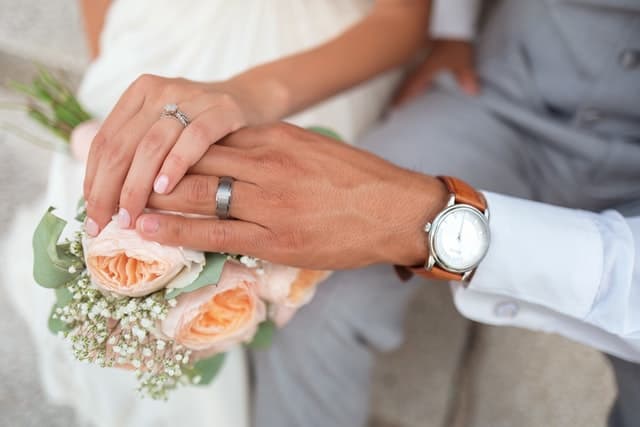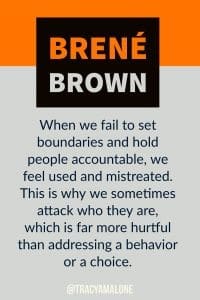How to set healthy relationship boundaries
Good relationships are founded on healthy boundaries. Without the right boundaries in a relationship there may be some unhealthy ownership, possessiveness, invaded privacy, and co-dependency. Healthy relationship boundaries are achieved when you take responsibility for your actions but not taking responsibility for the actions of others. They are achieved when you respect each other and what each of you stands for.
Could you be having some boundaries issue? Before you get onto creating relationship boundaries, you need to recognize if you do have a boundaries issue. For you to work on developing healthy relationship boundaries, you need to understand how your boundaries have been fairing so far. Here are some pointers that may show if you do have a boundaries issue.
You have a relationship boundaries issue if
- You feel others take advantage of you and your emotions
- You constantly have to fix the problem of others and they don’t do anything to improve themselves
- You are the one that is constantly invested in your relationship and the other person is not
- You are the one that is always forgiving the other party
- You defend yourself constantly and you are constantly made to feel ‘you are at fault’
- You let the other person always get away with stuff and even defend them
- You don’t behave as if you are unique individuals in your relationship
- Your partner thinks they can get away with basically anything
- You let them get away with almost anything
How can you develop healthy boundaries in your relationship?
Be self-aware
 If you don’t know yourself and what you want, chances are someone will try to decide for you what they think you want. Self-awareness is self-knowledge. It helps you know what you are comfortable with. Know what is acceptable to you and what is not.
If you don’t know yourself and what you want, chances are someone will try to decide for you what they think you want. Self-awareness is self-knowledge. It helps you know what you are comfortable with. Know what is acceptable to you and what is not.
A partner that causes a scene in public? Is this acceptable to you or not? Knowing where you stand on certain matters helps you draw boundaries. Knowing what you want helps you set healthy boundaries.
Know and name your limits
 Know what your limits are, and state them. Let someone know if they cross a boundary and to what point that is not ok. When you get into a new relationship for example, if you find your new partner is possessive in an unhealthy way, let them know.
Know what your limits are, and state them. Let someone know if they cross a boundary and to what point that is not ok. When you get into a new relationship for example, if you find your new partner is possessive in an unhealthy way, let them know.
Some narcissistic partners think they are concerned for you and but what they show is unhealthy possessiveness. Sure, it’s sweet when someone calls you in your day to check up on you. However, 150 missed calls in a day, and a long text message accusing you of stuff when you don’t pick your call is possessive and even a little insane. Know your boundaries and state them.
Don’t make assumptions
 Due to your different upbringing, your partner may perceive some things as normal and acceptable while they are not to you. Don’t make assumptions that your partner knows how you want to be treated.
Due to your different upbringing, your partner may perceive some things as normal and acceptable while they are not to you. Don’t make assumptions that your partner knows how you want to be treated.
You may be making assumptions that for example, your partner knows not to talk to you in a certain way, while to them, this is the only way they know. Let them know. If they say something, tell them ‘I am not OK with you talking to me that way’. Don’t assume they know the right way to treat you, let them know.
Learn to detach yourself from your partner
 Just because you are in a relationship or marriage and you are termed as ‘ONE’, there is a place where a line has to be drawn. You are not one item. You are unique individuals and you live as such. You should not make your partner’s emotions your own.
Just because you are in a relationship or marriage and you are termed as ‘ONE’, there is a place where a line has to be drawn. You are not one item. You are unique individuals and you live as such. You should not make your partner’s emotions your own.
Learn to differentiate between empathy and co-dependency. You can empathize with their pain but be watchful about making it your own, especially if your partner is always going through such emotions and you feel the need to feel them as well. Have your own set of hobbies, friends, privacy, and a life outside that of your partner.
Follow through with what you declare
 If you declare that by doing ABC your partner is violating your boundaries, let them know when they do so. Don’t let it slide. If you say, for example, “If you do ABC I will definitely leave you” be sure to follow through otherwise your partner will assume the boundaries are flexible.
If you declare that by doing ABC your partner is violating your boundaries, let them know when they do so. Don’t let it slide. If you say, for example, “If you do ABC I will definitely leave you” be sure to follow through otherwise your partner will assume the boundaries are flexible.
If for example, verbal or physical abuse (which should be a no go zone in any relationship) is a stated boundary, if your partner hits you, don’t let it slide. You will let them know that they can get away with crossing the boundary once in a while and they will push their limits. Following through shows you respect yourself and you will not tolerate anyone disrespecting you.
Know when it is time to move on
 Some boundaries can be a bit flexible. For example, you can set boundaries about your partner’s involvement in your privacy and often shift the boundaries. However, if it gets too much, know when it is time to leave. If you share how you want to be treated in a relationship and it is not being followed, know when it is time to move on and decide it is simply not working for you.
Some boundaries can be a bit flexible. For example, you can set boundaries about your partner’s involvement in your privacy and often shift the boundaries. However, if it gets too much, know when it is time to leave. If you share how you want to be treated in a relationship and it is not being followed, know when it is time to move on and decide it is simply not working for you.
Can boundaries be too much?
While setting boundaries is healthy, there are times boundaries can stand in the way of our happiness. Some people have set boundaries and such high walls that they cannot let anyone in. This stands in the way of forming healthy relationships. It may have to do with their parenting and they need to do some reparenting to repair some of this damage. When you realize that your boundaries may be a bit too rigid, you may need to soften them. Here are some situations in which you may need to soften your boundaries.
When you may need to soften boundaries
- When someone responds positively to our vulnerabilities
- When we heal a wound that led us to form boundaries
- When we want to get out of our comfort zone
- When we realize that our boundaries could be unhealthy walls
- When we feel our boundaries are interfering with connectedness and intimacy with those that we love
Examples of boundaries that need to be set in a relationship

Expectations
You need to set boundaries for the expectations you have for each other in a relationship. When everyone knows what is expected of them and the role they each have to play for a relationship to work, they know where the line is drawn and try to stay within the boundaries.
Tolerances
Set boundaries on what you can tolerate in a relationship. Tolerances can range from physical, to verbal to behavior. Let your partner know how much you can tolerate in certain behavior. For example, make it known that being lied to is not an option and not something you can tolerate so they know where you stand on the issue.
Sexual boundaries
Let your partner know what you are comfortable with and learn what they are comfortable with. Set boundaries on issues such as interactions with the opposite sex, how much is acceptable, and how much is too much. State where you stand with experimentations and how much wiggle room is allowed.
Financial boundaries
Money is always the elephant in the room in many relationships. Set boundaries on how you use money, or state what contribution is expected from each person. Set boundaries on how much is too much to spend at once and the consequences that follow.
Family boundaries
Basic boundaries on how you interact with each other’s families will help you keep peace with the families.
Friendships
You can’t like all your partner’s friends nor can they like all of your friends as well. It’s good to know this and accept that your friends are your own and your partners are their own. Also set boundaries on how much interaction between each other’s’ friends is acceptable. It may not be ok for your partner to find you entertain all his friends while he is not aware of the meeting.
Signs of healthy boundaries
Saying No without guilt
Asking for what you want or need without guilt
Taking care of yourself
Saying yes because you want to, not because you feel obligated or need to please others
Behaving according to your principles not to please others
Feeling safe to express your emotions without fear
Feeling supported to pursue your goals
Not feeling responsible for another person’s happiness
Being in tune with your feelings
Being treated with respect






